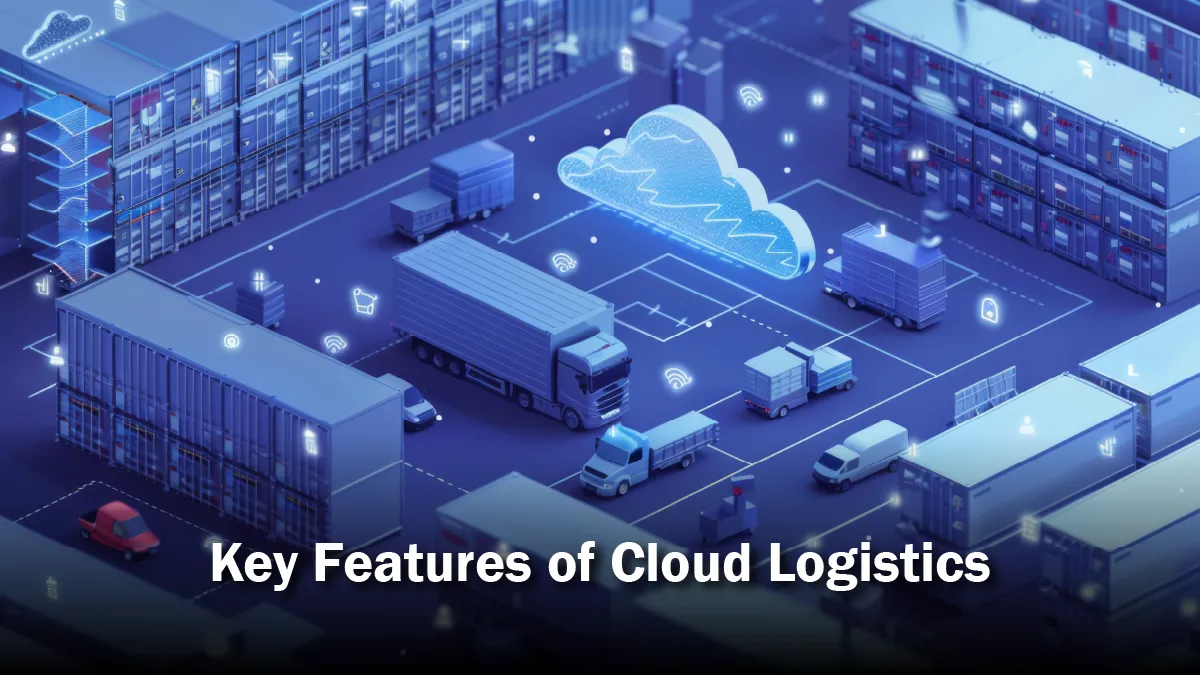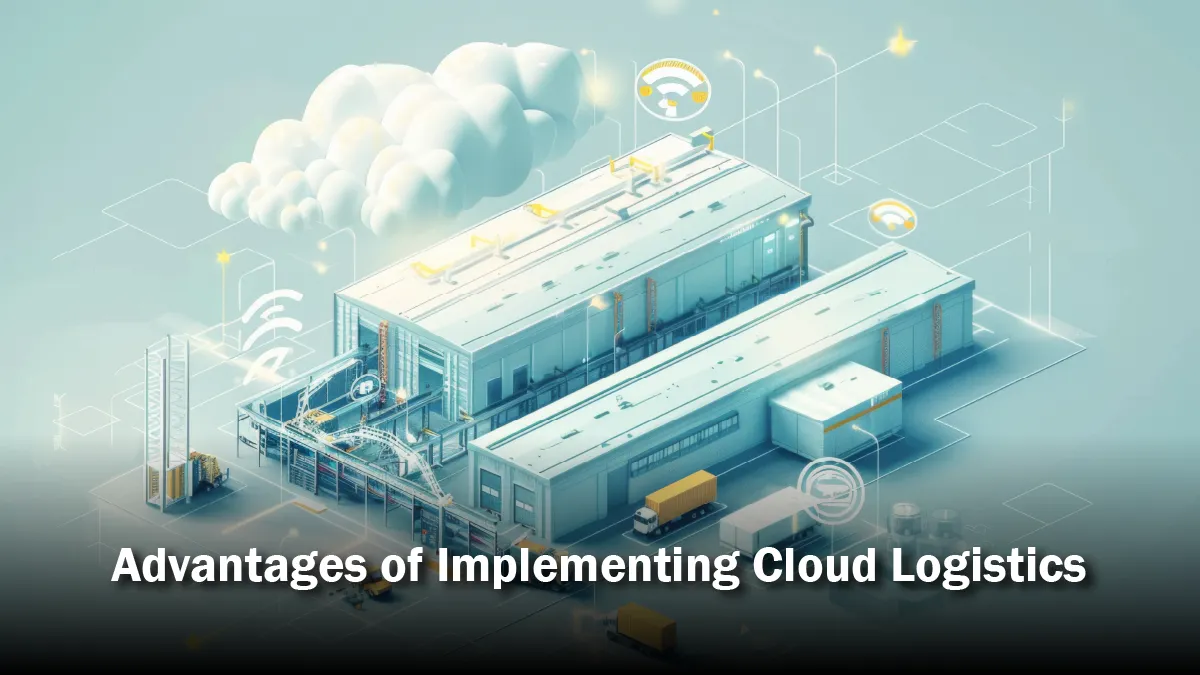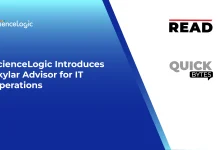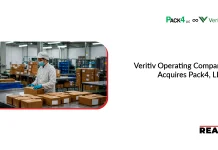In today’s fast-paced global economy, efficient logistics is the backbone of successful businesses. The advent of cloud logistics has transformed supply chains, enabling companies to operate with unprecedented agility, efficiency, and accuracy. But what exactly it is, and why is it such a game-changer for industries worldwide?
What is Cloud Logistics?
The term “cloud logistics” describes the use of cloud computing technology to efficiently and effectively manage and coordinate a variety of supply chain and logistical operations. This could involve streamlining supply chain operations procedures including inventory management, order fulfillment, transportation, and distribution through the use of cloud-based software, data analytics, and storage solutions.
Key Features of Cloud Logistics

● Centralized Data Management
Cloud-based supply chain management platforms consolidate data from multiple sources, providing a unified view of the supply chain. This centralization eliminates data silos, enabling better decision-making.
● Real-Time Tracking and Monitoring:
Companies can track shipments, inventory levels, and warehouse operations in real-time, ensuring quick responses to disruptions.
● Scalability
Cloud-based logistics solutions can scale effortlessly to accommodate growing business needs, whether expanding to new regions or handling seasonal spikes in demand.
● Automation
Tasks like order processing, invoicing, and route optimization can be automated, reducing manual errors and improving operational efficiency.
● Enhanced Collaboration:
Cloud platforms enable seamless communication between suppliers, distributors, and customers, fostering stronger partnerships and better service delivery.
Also Read: Why Drone Logistics is the Next Big Thing in Transportation
Advantages of Implementing Cloud Logistics

Businesses that make investments in cloud computing in logistics reap the following benefits:
Real-time stock visibility: With cloud-based inventory management, you can instantly update the amount of stock in your facility. Consequently, your company is always aware of the quantity of merchandise it has on hand.
Flexibility: SaaS may be scaled to meet the demands of your warehouse operations, workloads, and product seasonality.
Reduced upfront costs: Because cloud-based logistics provides more adaptable deployment options, your initial investment is lower. Additionally, you only pay on a periodic basis for the licenses you require.
Easy maintenance: Your IT personnel can concentrate on other important activities rather than worrying about WMS software maintenance.
Enhanced security: Cloud technology guarantees safe communication procedures and streamlines data administration. Every piece of data is kept on servers that adhere to stringent security guidelines.
Automatic updates: To guarantee continuous operation around-the-clock, the software is updated automatically.
Multi-location warehouse management: Cloud-based logistics enables you to remotely oversee the inventory and operations of facilities spread across multiple locations. All you need is a dependable internet connection to operate remotely.
SaaS: The Cornerstone of Cloud Logistics
Software as a Service (SaaS) is the cornerstone of cloud logistics because it provides the flexibility, scalability, and efficiency that modern supply chains demand. SaaS platforms enable logistics companies to manage complex operations like inventory tracking, route optimization, and real-time shipment monitoring through a centralized, cloud-based interface. Unlike traditional software, SaaS eliminates the need for costly infrastructure, offering seamless updates and integration capabilities that keep systems agile in a rapidly changing market. Moreover, it facilitates collaboration among supply chain stakeholders by providing secure, real-time data access across geographies. With its pay-as-you-go model, SaaS reduces upfront costs, making advanced logistics technology accessible to businesses of all sizes.
Applications of Cloud Logistics
● E-Commerce
E-commerce has been one of the biggest beneficiaries of cloud computing, with platforms like Amazon and Shopify setting industry benchmarks.
Inventory Management:
Cloud logistics helps e-commerce businesses maintain real-time inventory visibility across warehouses and distribution centers. This ensures stock levels are accurately updated, preventing overstocking or stockouts.
Order Processing:
Automated systems process orders from multiple sales channels efficiently, reducing manual intervention and errors. Customers receive real-time updates on their order status, enhancing transparency.
Delivery Optimization:
By leveraging AI algorithms, cloud platforms optimize delivery routes, ensuring faster and cost-effective last-mile delivery. This is particularly vital for same-day or next-day delivery promises.
● Manufacturing
Manufacturers rely on cloud computing for logistics to streamline their supply chains and meet production demands with minimal disruptions.
Just-in-Time (JIT) Inventory Management:
Cloud logistics supports JIT manufacturing by ensuring raw materials arrive exactly when needed, reducing storage costs and waste.
Workflow Optimization:
Integration with supplier systems facilitates seamless communication, allowing manufacturers to adjust production schedules based on material availability.
Demand Prediction:
Advanced analytics use historical and real-time data to forecast demand, helping manufacturers plan production and avoid overproduction or underproduction.
● Healthcare
In the healthcare industry, timely delivery and traceability of sensitive supplies are critical.
Cloud-based logistics plays a pivotal role in ensuring patient safety and regulatory compliance.
Critical Supply Chain Management:
Cloud systems track and manage the distribution of medicines, vaccines, and medical equipment. This was particularly evident during the COVID-19 pandemic, where cloud computing facilitated the global vaccine rollout.
Cold Chain Logistics:
Many pharmaceuticals require strict temperature controls. Cloud-based logistics monitors shipment conditions in real-time, alerting stakeholders to potential deviations.
Emergency Response Coordination:
In disaster scenarios, cloud logistics ensures rapid mobilization of critical supplies to affected areas, saving lives.
● Retail
Retailers use logistics cloud platforms to offer consistent shopping experiences across multiple channels, from physical stores to e-commerce platforms.
Omnichannel Integration:
Cloud systems synchronize online and offline operations, enabling features like in-store pickup for online orders and unified returns management.
Warehouse Management:
Automation in warehouse operations, powered by cloud logistics, optimizes picking, packing, and shipping processes. This reduces order processing times and costs.
Customer Experience:
With logistics cloud platforms, retailers can provide real-time updates on product availability and delivery status, boosting customer satisfaction.
Future of Cloud Logistics
The future of cloud logistics is bright, driven by emerging technologies like artificial intelligence (AI), blockchain, and the Internet of Things (IoT). AI-powered algorithms will enhance predictive analytics, allowing companies to anticipate demand fluctuations and optimize inventory. Blockchain technology will improve supply chain transparency by providing immutable records of transactions, while IoT devices will enable precise tracking of shipments and assets.
Moreover, the integration of autonomous vehicles and drones with cloud logistics systems will revolutionize last-mile delivery, reducing costs and improving efficiency. Sustainability will also take center stage as companies leverage cloud platforms to minimize waste and optimize energy usage.
Final Thoughts
Cloud logistics is not just a technological upgrade—it’s a strategic necessity for businesses aiming to thrive in a competitive market. By enhancing efficiency, transparency, and scalability, it empowers companies to meet customer expectations while staying ahead of industry trends. As innovation continues to reshape the logistics landscape, embracing cloud-based solutions will be the key to unlocking new opportunities and achieving sustainable growth.




